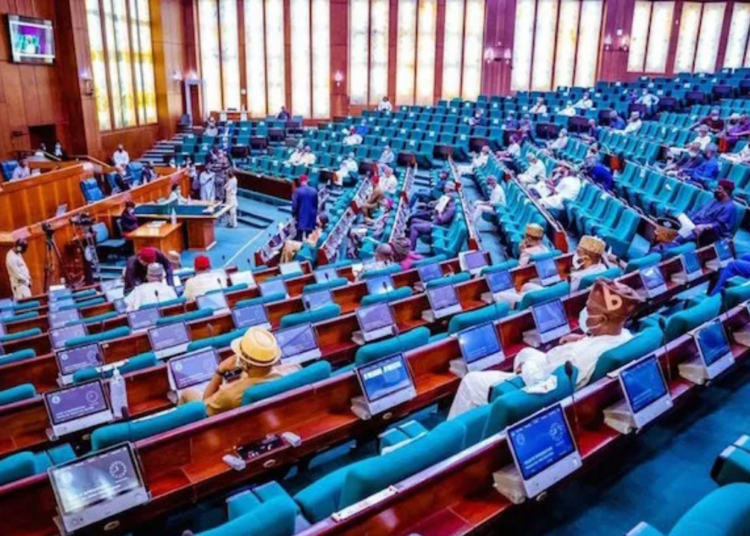The House of Representatives has resolved to to investigate incidences of aviation fuel contamination, associated safety risks and non-adherence to international standards and best practices in the country’s aviation oil industry.
The resolution followed the adoption of a motion of urgent public importance moved at plenary on Thursday by Hon. Olawuyi Raheem Tunji (Kwara State).
Moving the motion, Tunji recalled the serious fuel contamination of the main fuel tanks of Boeing 737-300 aircraft belonging to Max Air B737-300 leading to the Auxiliary Power Unit (APU) shutdown on Thursday, July 7 at the Yola Airport.
He said Max Air has reportedly confirmed that it got the contaminated fuel from certain undisclosed aviation refueling outlet which eventually led to the unfortunate incidence and grounding of its 5N-MHM aircraft by the Nigerian Civil Aviation Authority (NCAA).
“NCAA following the incident via a letter NCAA/DG/AIR/11/16/363 dated 9th July, 2023 suspended Parts A3 (Aircraft Authorization) and D43 (Aircraft Listing) of the Operations Specifications issued to Max Air Ltd with regards to the operations of the Boeing B737 aircraft type in their fleet.
“NCAA noted several occurrences involving Max Air Boeing B737 aircraft including: the Loss of Number 1 Main Landing Gear (MLG) wheel during the serious incident involving a Boeing 737-400 aircraft, registration marks 5N-MBD which occurred between take-off at Yola Airport, Adamawa State and on landing at Nnamdi Azikiwe International Airport, Abuja, Nigeria on May 7 2023.
“Fuel Contamination of the main fuel tanks of aircraft B737-300, Registration Marks; 5N-MHM, leading to the Auxiliary Power Unit (APU) shutdown on ground at Yola Airport on the 7th of July, 2023; aborted take-off of a Boeing 737-400 aeroplane, registration mark 5N-MBD, at the Mallam Aminu Kano International Airport (MAKIA) on July 11, 2023, due to a high Exhaust Gas Temperature (EGT) indication,” he added.
The lawmakers expressed concern that there have been many flight accidents in history caused by fuel contamination resulting in abnormal operation of aircraft engines and water as a major contaminant.
He said NCAA has been receiving series of mandatory occurrence reports from airlines and other aircraft operators with issues related to water being found in the aircraft fuel tank of the aircraft.
Tunji said the Nigerian regulatory agencies in the aviation oil industry have demonstrated lack of capacity and failed to ensure certification of appropriate specification and proper handling of fuels to remain essentially free of harmful contaminants during production, transportation and distribution.
He expressed worry that: “when jet fuel from variegated sources are mixed and co-mingled in the same tank, the co-mingling changes the jet fuel chemistry, as the specific gravity of the co-mingled jet fuel changes, leading to the unbalanced proportion of the static dissipater additives may cause electrical inequality which may charge the fuel electrically in tank and cross-contamination with fatty acid methyl esters (FAMEs) causing batch traceability damage.”











